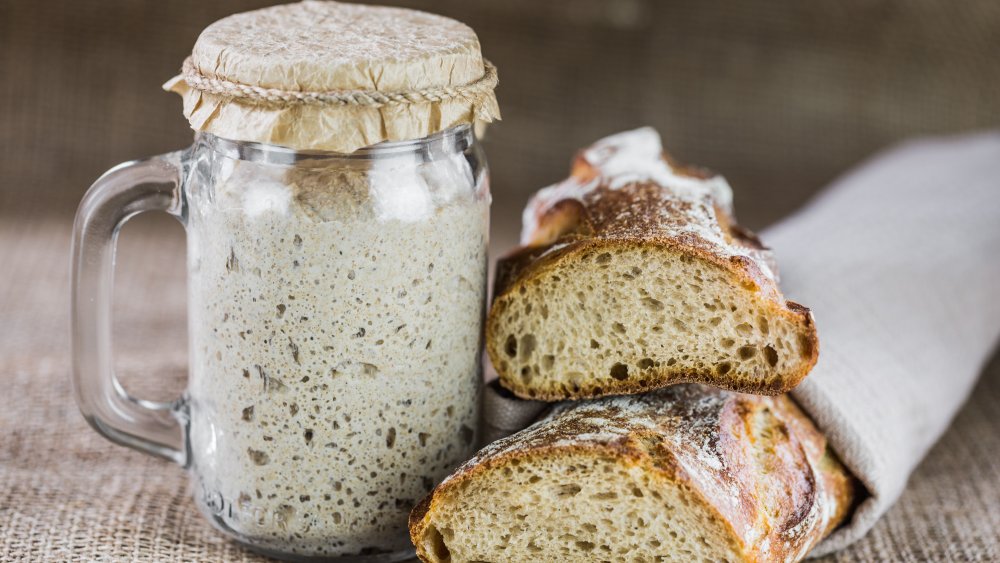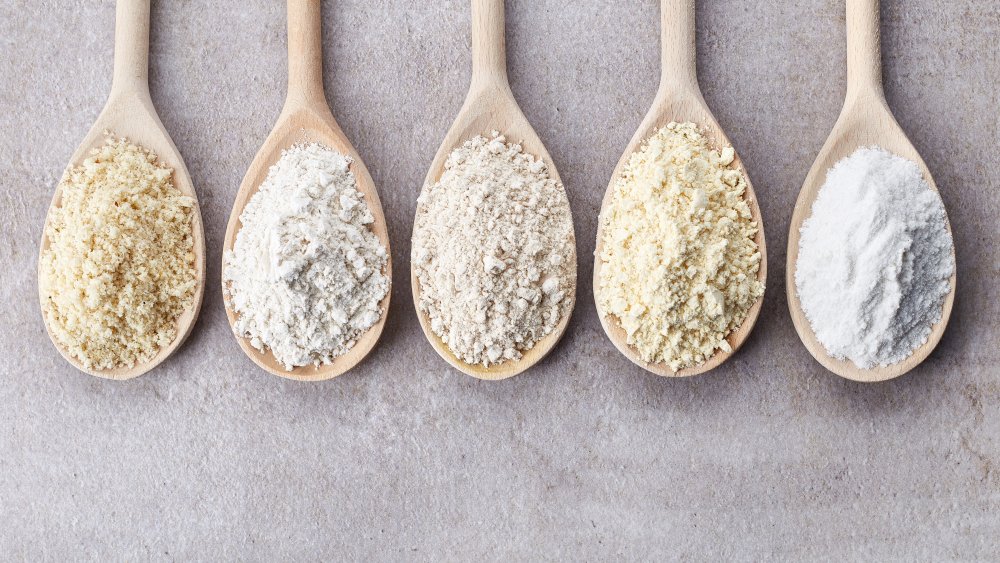Why The Type Of Flour You Use In A Sourdough Starter Is So Important
A sourdough starter is like the gift that keeps on giving. By regularly feeding it a little bit of flour and water, you ensure a future bright with honeyed whole wheat sandwich loaves, rustic rounds of caraway-flecked rye, sweet and nutty spelt batards, and crusty multigrain boules. Your bread-baking days may look very different depending on what type of flour you feed your sourdough starter.
For beginning bakers, white flour is the gold standard. True Sourdough praises white flour for imparting strong gluten development. A naturally occurring protein in wheat products like flour, according to Modernist Cuisine, gluten is "the net that holds bread together." Essentially, traps the gas bubbles formed during fermentation, aiding bread's ability to rise. White flour makes the bread easier to knead and shape and also yields a more reliable rise.
Sourdough loaves baked with white flour will be light and soft, with larger air holes. Whole wheat flour loaves, in comparison, will be dense with nuanced flavors. These distinctions can be credited to the make-up of the flour. Whole wheat flour, as its name implies, contains the whole grain whereas white flour is mostly just the starchy interior of the grain, called the endosperm. In removing the outer part of the grain, the bran and the small inner part of the berry, called the germ, white flour gains loft but loses complex flavors.
Different flours mean different flavors and textures
In using different kinds of flour, bakers balance enough bran to develop flavor while maintaining gluten levels. Kristen Dennis, a former scientist and the sourdough home baker behind the drool-worthy Instagram account Full Proof Baking, told Serious Eats, "the more protein you have, the more rise you will have."
Ancient grains, like rye, have less gluten than modern kinds of wheat. This is why they're often blended with white flour in bread recipes. On its own, rye flour produces a sticky, dense dough. Though, Serious Eats applauds its rich flavor and nutrient-profile. In a bake-off with sourdough starters made from five different flours, they found rye flour to produce a vigorous sourdough starter rather quickly. When used in baking, it produced a loaf with a gummy, not unpleasant texture, and a decidedly dairy-sour taste. In their opinion, a whole wheat flour starter resulted in a loaf with the most interesting flavors and aromas. Serious Eats' starter made with 100 percent white flour yielded a loaf that was the least sour but took top marks for its crumb structure.
Excited to conduct your own sourdough experiment? Switching your starter from one flour to another is simple enough, according to Cultures for Health. Divide your culture into two (reserving half in the fridge as a back-up) and feed the other half with the new flour. Your sourdough starter will be bread-ready after just a few feedings.

